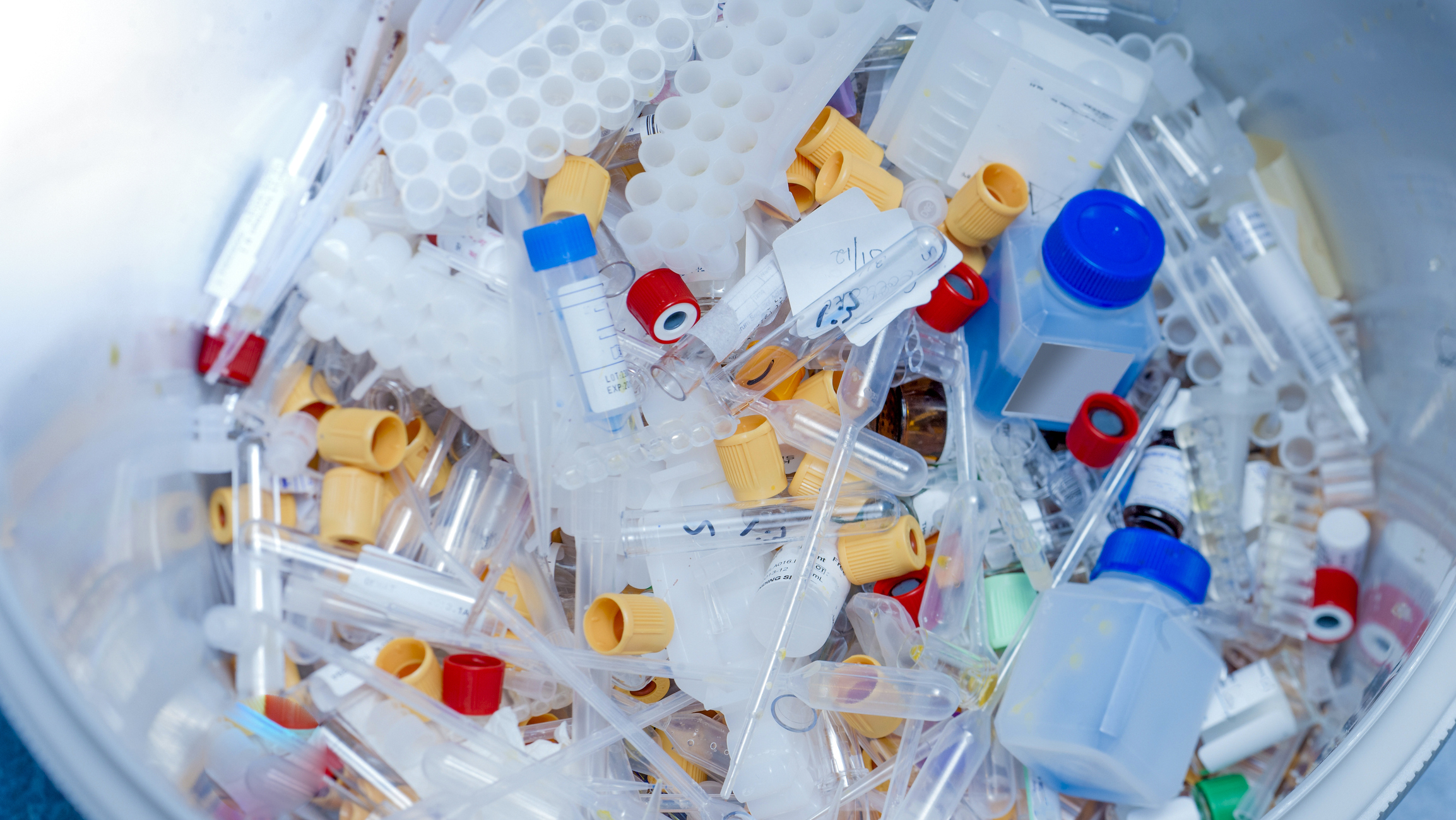GLaS - Green Lab Services
Ireland's lab plastic problem

In Brief
- Challenge: Plastics Challenge
- Challenge Type: SFI Future Innovator Prize
- Status: Complete
The Challenge
Per person working in a laboratory setting, an estimated 1,000 kg of plastic waste is generated every year. Common polymer types used in labs include polyethylene terephthalate, polypropylene, polyethylene and polystyrene, polymers reported to have had an annual global resin extraction carbon footprint of between 88 and 135 Mt, and an additional conversion-associated footprint of 27-93 Mt CO2 equivalents. Ireland has a large, active and productive lab sector, which supports third-level education and research (at least 200 labs per University campus), the HSE (approx. 64 diagnostic labs and IT-based training labs), the Marine Institute (approx. 70 labs), DAFM/Teagasc (approx. 27 labs), Irish Water (two national hubs under development, to replace regional labs; 0.5-1 million plastic sample bottles used per year); State Labs (analyses of animal feedstuffs, food and feed contaminants, human and animal toxicology, customs and excise). The Irish lab sector is responsible for enormous volumes of plastic waste, a significant portion of which is considered by many to be clean, non-contaminated, high-quality, potentially high-commodity value plastic that could be diverted from land-fill or incineration. Addressing this ‘lab plastic problem’ will contribute to reducing, reusing or recovering plastic from lab waste streams and help Ireland to meet its waste management and carbon-reduction pledges.
The Solution
Interrupt lab plastic waste streams by re-evaluating what lab plastic is used for, where it comes from and how it can be reused. Mediate a nation-wide educational campaign, that explains to lab workers not only the volume, types, global warming potential and carbon footprint of the plastic lab items they handle, but that also reveals how their personal biases, combined with organisational and societal influences, may be preventing them from engaging in environment-friendly actions within their labs. Replace the current model of importing lab plastics, with one where a new plastics moulding enterprise will produce designed-for-purpose lab plastics using high-quality materials, including resins sourced from existing lab waste streams. By providing knowledge-based services around ‘lab greening’, GLaS will collaborate with lab-workers to advise them on how to assess and improve not only their practices in relation to plastics, but also how to reflect on other habits that could impact the environment. Crucially, GLaS will actively seek to provide work for those who are distant from the labour market, an ambition that is paramount as the nation navigates its way out of the global COVID crisis.
UN SDG Alignment
Goal 11: Make cities inclusive, safe, resilient and sustainable
The Team
- Team Lead: Dr Una Fitzgerald, University of Galway
- Team Co-Lead: Michael McCormach, Irish Manufacturing Research
Societal Impact Champion
- Sinéad Ní Mhainín, Connacht Ulster Regional Waste Management Office